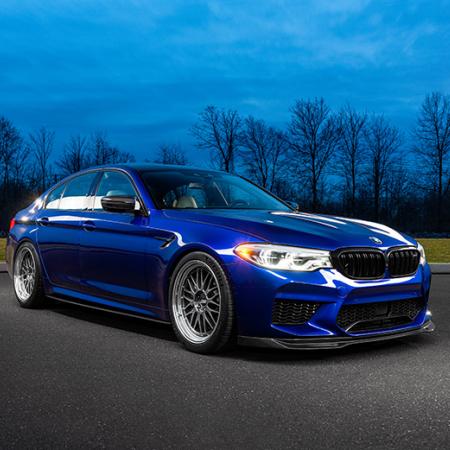Official production details of the BMW i3 have been released ahead of its full unveiling later this month.
BMW says a fully charged lithium-ion battery gives the i3 a range of 80-100 miles in “everyday driving conditions”. This rises by approximately 12 miles when Eco Pro mode is selected, and another 12 miles in Eco Pro+ mode, giving it a potential EV range of 125 miles.
Recharging can be completed in less than 30 minutes from a fast charger, while a complete top-up takes about eight hours from a standard domestic power socket.
The BMW i3 will also be offered with an optional range-extending engine, which maintains the charge of the battery at a constant level. The 650cc two-cylinder petrol engine derived from the brand’s motorcycle division is mounted adjacent to the electric motor above the rear axle, and increases the maximum range in “day-to-day driving” to approximately 185 miles.
Specifying the range-extender hybrid has no impact on the i3’s cargo capacity, with its nine-litre fuel tank positioned at the front of the car.
BMW claims the i3 is the “world’s first fully networked electrically powered car” with an unrivalled level of information exchange between the vehicle, the driver and the outside world.
An integrated SIM card provides owners with access to BMW’s ConnectedDrive services, including satellite navigation optimised for EV driving with pedestrian and public transport directions to take drivers from door to door.
The optional driving assistant plus safety system incorporates active cruise control and a collision warning system that operates up to 45 mph. The system can deliver maximum braking power if required to avoid a stationary or moving vehicle or pedestrian.
The fully automated Parking Assistant system is also available as an option, allowing the driver to hand complete control of the throttle, brake and steering to the vehicle.
The i3 will be priced in the low-to-mid-$40,000 range, when it goes on sale in the U.S. in the second quarter of 2014, BMW spokesman Dave Buchko told Edmunds on Wednesday. The pricing does not factor in a federal tax credit of $7,500.
Buchko said BMW has not started accepting pre-orders for the i3 and has not yet launched the i3 configurator on the BMW build-your-own Web site here. But he said the configurator will be launched "fairly soon."
Buchko would not confirm a price on the optional range-extender engine on the i3. Speculation in the media has pegged the price in the $2,000-$3,000 range. The range-extender engine is a 650cc two-cylinder gasoline engine that delivers 34 additional horsepower. It increases the car's maximum range to around 160-180 miles, according to the automaker.
BMW also said that it will be entering into "a far-reaching partnership in the electricity field to ensure premium charging solutions are available" for the i3. Buchko would not name the provider at this point. But he said i3 buyers likely will be able to purchase so-called "green electricity" produced from clean sources to power their EV.
BMW has not provided pricing on home-charging stations for the i3, but they are expected to start around $2,000-$3,000 for basic installation, he said.
The BMW i3 will be launched in New York on July 29.––Paul Duchene









